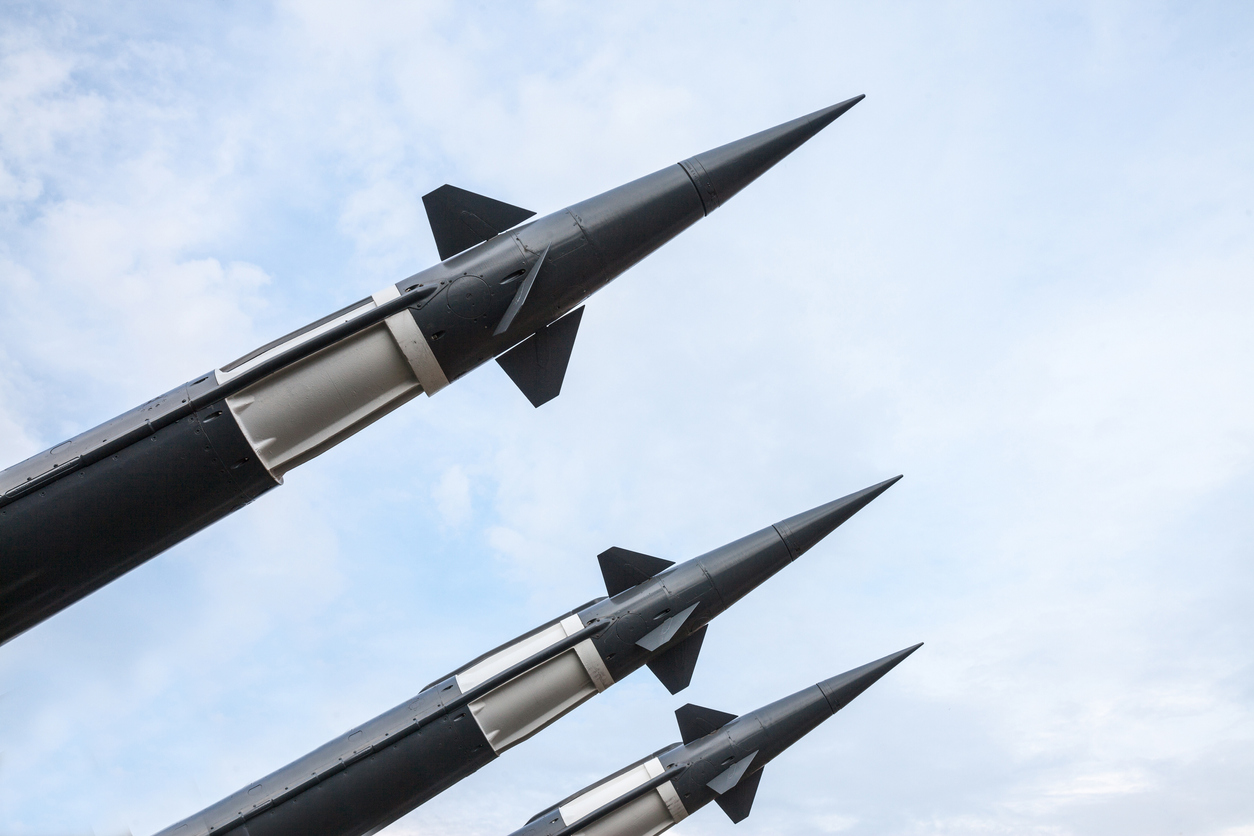North Korea challenges domestic pivot narrative with new ballistic missile test


A free daily email with the biggest news stories of the day – and the best features from TheWeek.com
You are now subscribed
Your newsletter sign-up was successful
North Korea conducted a ballistic missile test Wednesday, its first in around two months, The Associated Press reports.
According to the U.S. military, this launch "highlights the destabilizing impact" of the rogue nation's "illicit weapons program." The test also drew concerned reactions from the Japanese and South Korean governments.
In a speech delivered last week at a Workers' Party of Korea conference, North Korean leader Kim Jong Un broke with precedent by steering clear of overtly bellicose rhetoric and making only vague allusions to ongoing tensions with South Korea and the United States.
The Week
Escape your echo chamber. Get the facts behind the news, plus analysis from multiple perspectives.

Sign up for The Week's Free Newsletters
From our morning news briefing to a weekly Good News Newsletter, get the best of The Week delivered directly to your inbox.
From our morning news briefing to a weekly Good News Newsletter, get the best of The Week delivered directly to your inbox.
Instead, Kim pledged to make "radical progress in solving the food, clothing, and housing problem for the people."
Chad O'Carroll, founder of Seoul-based NK News, tweeted in response to Kim's speech that the authoritarian nation appears to be "more or less in survival mode for 2022 — and doesn't really know what to do re: foreign policy right now."
North Korea has implemented strict border controls and limitations on internal movement to prevent the spread of COVID-19, a move that has led to a sharp decline in imports and significant food shortages. Some analysts suggest these hardships explain Kim's pivot to pocketbook issues.
According to BBC, however, Kim also said in his speech that North Korea would continue to build up its defense capabilities.
A free daily email with the biggest news stories of the day – and the best features from TheWeek.com
Denuclearization talks between Kim and then-President Donald Trump foundered in 2019 when Trump refused to ease sanctions against North Korea, NPR reported. Since then, the quasi-communist hereditary dictatorship has committed itself to expanding its nuclear arsenal in order to guarantee future autonomy.
Grayson Quay was the weekend editor at TheWeek.com. His writing has also been published in National Review, the Pittsburgh Post-Gazette, Modern Age, The American Conservative, The Spectator World, and other outlets. Grayson earned his M.A. from Georgetown University in 2019.
-
 Why are election experts taking Trump’s midterm threats seriously?
Why are election experts taking Trump’s midterm threats seriously?IN THE SPOTLIGHT As the president muses about polling place deployments and a centralized electoral system aimed at one-party control, lawmakers are taking this administration at its word
-
 ‘Restaurateurs have become millionaires’
‘Restaurateurs have become millionaires’Instant Opinion Opinion, comment and editorials of the day
-
 Earth is rapidly approaching a ‘hothouse’ trajectory of warming
Earth is rapidly approaching a ‘hothouse’ trajectory of warmingThe explainer It may become impossible to fix
-
 NIH director Bhattacharya tapped as acting CDC head
NIH director Bhattacharya tapped as acting CDC headSpeed Read Jay Bhattacharya, a critic of the CDC’s Covid-19 response, will now lead the Centers for Disease Control and Prevention
-
 Witkoff and Kushner tackle Ukraine, Iran in Geneva
Witkoff and Kushner tackle Ukraine, Iran in GenevaSpeed Read Steve Witkoff and Jared Kushner held negotiations aimed at securing a nuclear deal with Iran and an end to Russia’s war in Ukraine
-
 Pentagon spokesperson forced out as DHS’s resigns
Pentagon spokesperson forced out as DHS’s resignsSpeed Read Senior military adviser Col. David Butler was fired by Pete Hegseth and Homeland Security spokesperson Tricia McLaughlin is resigning
-
 Judge orders Washington slavery exhibit restored
Judge orders Washington slavery exhibit restoredSpeed Read The Trump administration took down displays about slavery at the President’s House Site in Philadelphia
-
 Hyatt chair joins growing list of Epstein files losers
Hyatt chair joins growing list of Epstein files losersSpeed Read Thomas Pritzker stepped down as executive chair of the Hyatt Hotels Corporation over his ties with Jeffrey Epstein and Ghislaine Maxwell
-
 Judge blocks Hegseth from punishing Kelly over video
Judge blocks Hegseth from punishing Kelly over videoSpeed Read Defense Secretary Pete Hegseth pushed for the senator to be demoted over a video in which he reminds military officials they should refuse illegal orders
-
 Trump’s EPA kills legal basis for federal climate policy
Trump’s EPA kills legal basis for federal climate policySpeed Read The government’s authority to regulate several planet-warming pollutants has been repealed
-
 House votes to end Trump’s Canada tariffs
House votes to end Trump’s Canada tariffsSpeed Read Six Republicans joined with Democrats to repeal the president’s tariffs
